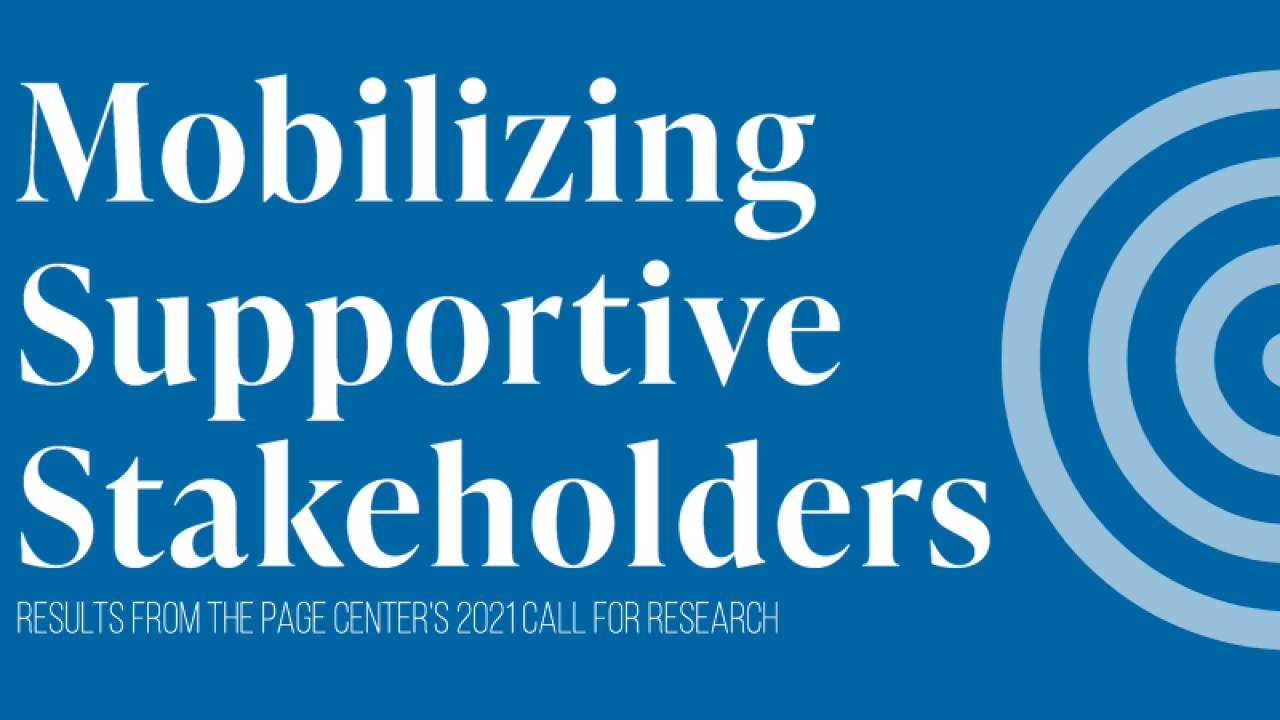May 16, 2023
Mobilizing supportive stakeholders through CSA efforts - Part 1

By Anli Xiao, University of South Carolina, and Christen Buckley, Pennsylvania State University
The 2023 Edelman Trust Barometers reports that 53% of globally surveyed consumers believe their countries are more divided today than ever before and report an increasing lack of trust in government and nongovernmental entities.
In fact, they reported that businesses are currently perceived as the only competent and ethical institutions, but that they still need to contribute more. Increasingly polarized political identities are both a product and a cause of these reported expectations from consumers.
Current CSA research has identified both positive and negative outcomes of such initiatives. But, what motivates people to support a corporation’s CSR initiative? Furthermore, what should companies do concerning issue opponents in such a divisive communication landscape?
With support from Page Center, we launched two studies directed toward diametrically opposed stakeholder groups and explored the effects of CSA messages on these respective groups. Both studies employed an experimental design using stimuli that based on DICK’s Sporting Goods’ 2017 pro-gun control campaign that prompted responses from consumers on either end of the issue spectrum.
Our first study investigated why people support CSA and how companies should communicate their CSA efforts to mobilize supportive consumers in the context of stricter gun control.
We argued that publics’ support of a CSA cause is a type of collective action and applied the extended Social Identity Model of Collective Action (SIMCA), to examine publics’ support of CSA and the company itself. We wanted to see if the way the message was framed elicited different responses from supporters of the cause; specifically, is it more effective to frame CSA efforts as morally fitting, or to frame them as a response to the morally violating threat from the “other side”?
We also incorporated different levels of bandwagon cues into the message; would more perceived support influence the participants reported attitudes toward CSA, the message, the message, and the company?
The results of Study 1 revealed that people’s intention to support a company-sponsored gun-control CSA cause could be predicted by their internalized identity as a gun control supporter, their level of anger about the issue, and their perceived efficacy of resolving the issue with the company.
The results also suggest that framing the CSA message in a way that fits the supporters’ ideology can also lead to heightened politicized identity, which predicts supportive behaviors. In short, participants' group anger and group efficacy were driven mainly by their membership within a pro-gun control community rather than how the pro-gun control CSA message was framed.
The impact of the bandwagon cue revealed unexpected findings; when reported support was low, but the message aligned with their morals, participants reported being more closely aligned with their identity as a gun control supporter.
Study 1, titled, “Mobilizing supportive stakeholders: applying the Social Identity Model of Collective Action (SIMCA) to Corporate Social Advocacy (CSA)” will be presented at the 106th annual AEJMC conference in Washington D.C.
This research was funded by a 2021 Page/Johnson Legacy Scholar Grant from a call for proposals on corporate social advocacy. This project consisted of two parts. Click here to read about study 2.
